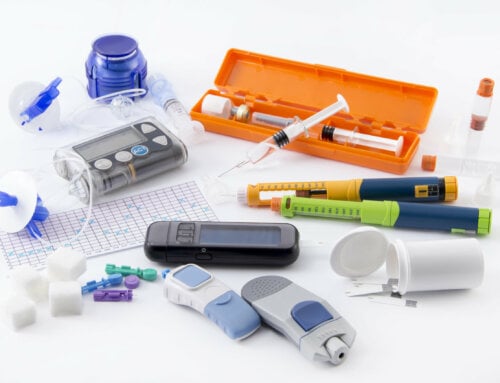Savvy people with diabetes have a dedicated health care team to help them develop and maintain good lifestyle habits. This team could include nurse practitioners, primary care physicians and physician assistants who treat diabetes. Learn what role each of these important team members play in the ongoing care and treatment of diabetes.
- Your primary care physician (PCP) is the doctor you see for general checkups, screenings and when you feel sick. Often your primary care doctor will refer you to other specialists, such as an endocrinologist who specializes in endocrine diseases such as diabetes. Some primary care physicians are trained to care directly for people with diabetes. Your PCP may work in collaboration with physician assistants and nurse practitioners in setting such as hospitals, clinics or a private medical office.
- Your PCP might be a medical doctor (MD) or a doctor of osteopathic medicine (DO). An MD diagnoses and treats injuries and illnesses, which includes exams, testing and possibly surgery, as well as prescribing medication. An MD must complete four years of medical school, participate in a specific residency training program and pass a national licensing exam to get a state MD license. A DO performs the same functions as an MD, with similar educational and licensing requirements. A DO can perform musculoskeletal manipulation and considers the whole person to develop a complete treatment approach.
- A physician assistant (PA) diagnoses and treats patients, orders and reviews lab results, performs basic procedures and may assist in surgery. They also provide patient counseling and education, make rounds in clinics and hospitals and prescribe medications. A PA earns a bachelor’s degree, completes an accredited PA program before taking a national certification exam to get a state license. A PA must always work under the guidance of a physician whether it be a MD or DO.
- A nurse practitioner is a registered nurse with special training in caring for people with acute or chronic diseases including diabetes. They must pass a national certification exam and hold a state license. A nurse practitioner can assess patients, order and review diagnostic tests and treat certain ailments. Depending on the state, a nurse practitioner may also be able to prescribe medication or work on their own.
- Many nurse practitioners also train as nurse educators who teach people with diabetes; they are Certified Diabetes Educators (CDE). These professionals pass a national test that covers teaching, learning, blood glucose testing and physiology. Diabetes nurse practitioners usually have a master’s or doctoral degree as well as advanced clinical training. They teach patients what diabetes is, how to use medications and administer insulin, how to make lifestyle changes and how to check their blood sugar. They also teach people with diabetes important skills such as ways to handle sick days, how to stay healthy during pregnancy and the symptoms of high and low blood sugar.
All the members of your health care team are qualified and important contributors to your well-being. Remember, the most important member of your health care team is you. You know how you feel and what treatment methods fit into your lifestyle. When you don’t feel right or have difficulty maintaining your diabetes self-management routine, discuss it with your health care team. Keep plenty of diabetes supplies on-hand to monitor your blood sugar regularly. If you notice irregularities, report them to your team. Together you can create a program to manage your blood sugar levels.







Leave A Comment